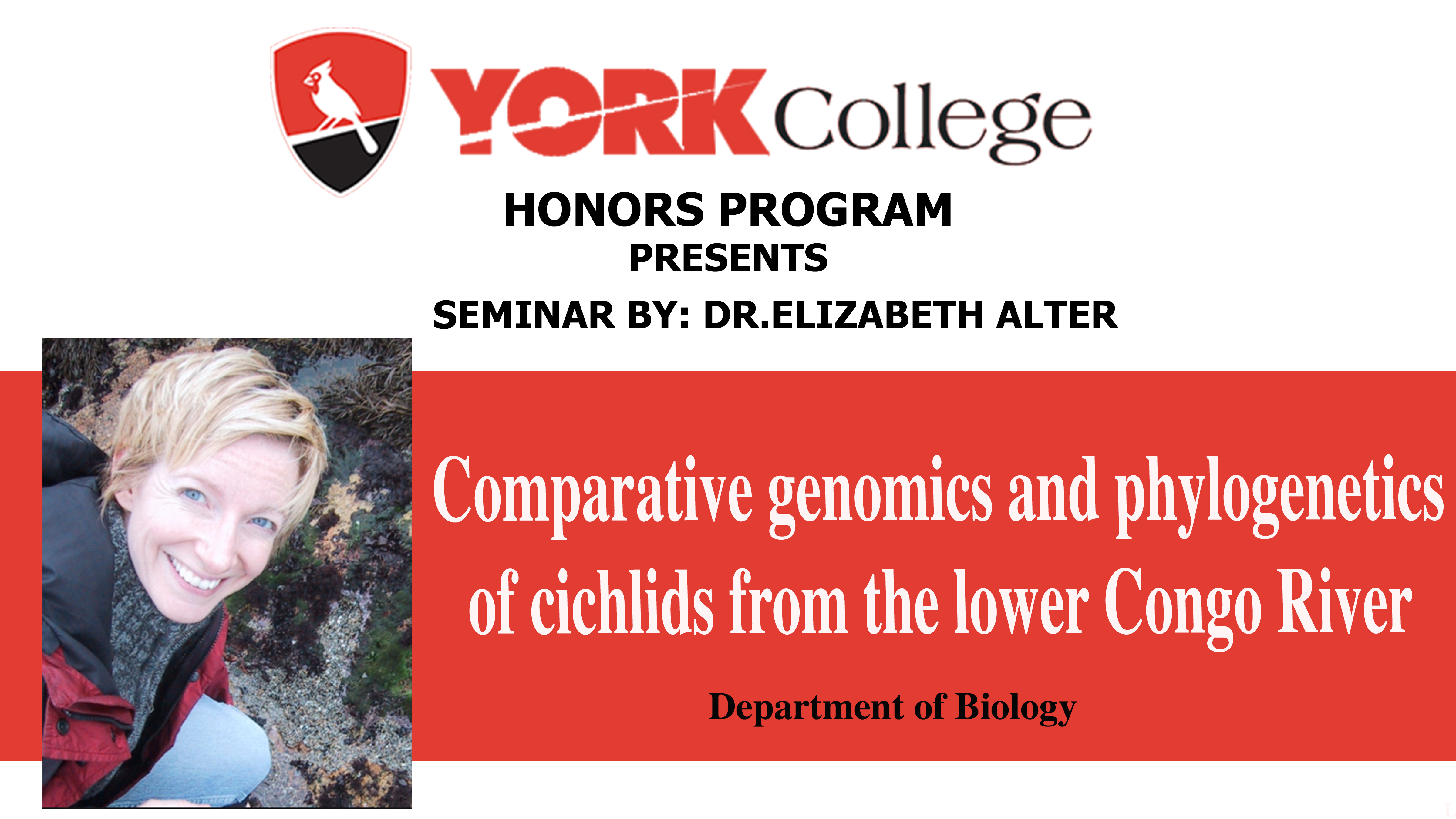Comparative Genomics and Phylogenetics of Cichlids from the Lower Congo River
Dr. Alter, a marine biologist presents comparative genomics and phylogenetics of cichlids from the lower Congo River.
Lamprologines are a hyperdiverse clade of cichlid fishes endemic to the Congo basin. They are emblematic of both the ecological and behavioral diversity of African cichlids and the phylogenetic uncertainties that often characterize this group. While most research attention has focused on lamprologines diversity in Lake Tanganyika, lamprologines are also found in rivers, where some species exhibit some of the most unusual morphologies found amongst the clade. Foremost among these is the lower Congo endemic Lamprologus lethops, the world's only known blind and depigmented cichlid. To better understand the evolutionary history of this remarkable lineage, we 1) assessed the phylogenetic framework and biogeographic history of this group using ultraconserved elements (UCEs); and 2) sequenced the genomes of L. lethopsand the syntopic L. tigripictilis, and compared them with the previously sequenced Neolamprologus brichardi genome. Phylogenetic inference using 165 individuals and 387 UCE loci (237,996 bp) indicates that the riverine cichlids nest within the "non-ossified" lamprologines as expected based on previous work, but the placement of L. lethops within the genus is unexpected. Comparison of the L. lethops genome with other fish genomes reveals a rapid rate of positive selection relative to L. tigripictilis. Genes undergoing positive selection in L. lethops include a number involved in embryonic development, skeletal and cartilage remodeling, and neurological pathways.

